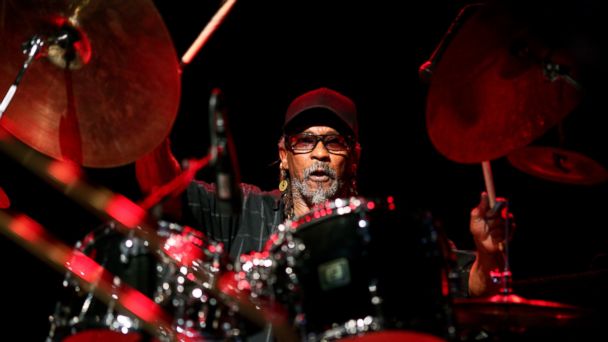Ronald Shannon Jackson, Drummer Who Fused Funk, Rock, Free Jazz, Dies at 73

(Credit: Philip Ryalls/Redferns/Getty Images)
Ronald Shannon Jackson, the drummer whose furious fusion of free jazz, rock, funk and punk broke musical barriers, has died in Fort Worth, Texas, after a battle with leukemia. He was 73.
He performed with jazz giants Charles Mingus, Betty Carter, Jackie McLean, Joe Henderson, Kenny Dorham, McCoy Tyner, Herbie Hancock, Wayne Shorter, Ray Bryant, Stanley Turrentine, Albert Ayler, Cecil Taylor, and Ornette Coleman, and then turned around as a leader and helped bring up a whole new generation.
Jackson's bands The Decoding Society and Power Tools were the proving ground for an astonishing list of young musicians, including guitarists Bill Frisell, James "Blood" Ulmer, Vernon Reid and Jef Lee Johnson; sax players Byard Lancaster, Eric Person and James Carter; violinists Billy Bang and Akbar Ali; bass player Melvin Gibbs; and trombone player Robin Eubanks.
Both groups had constantly changing lineups, but regardless of who was on stage, they were driven by Jackson's musical vision, his complex, muscular drumming, and his readiness to explore new sounds.
By his own account, Jackson, who was born in 1940, grew up with music all around him.
"My mother played piano and organ at St. Andrew's Methodist Church, and worked as a schoolteacher. My father owned the only black-owned local record store and jukebox business," he wrote in the bio on his website. "On one side of my family is Curtis Ousley (who became famous as King Curtis). On the other is David "Fathead" Newman. I started playing drums in elementary school under the clarinetist John Carter, and in high school under Mr. Baxter, the same teacher who taught Ornette Coleman, Curtis Ousley, Dewey Redman, John Carter, Julius Hemphill, Charles Moffett, and James Jordan."
After moving to New York in 1966, where he studied at NYU with saxophonist Rene McLean, bassist Abdul Maklik. He played in Ornette Coleman's band in the late 1970s, but left in 1979 to form the first iteration of the Decoding Society.
Over the next 30 years, he repeatedly reinvented his bands, finding fresh new voices as the others he had nurtured graduated to their own projects.
He brought his music around the world, touring more than 50 countries, and also worked as an educator.